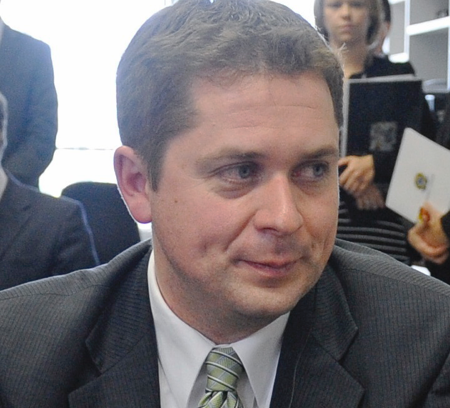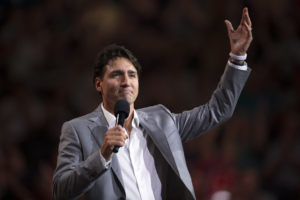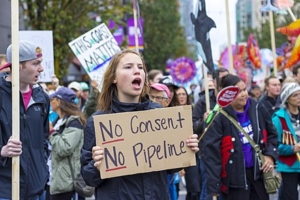Canada’s New Conservative, Super PAC Schemes, and New Asian Energy
Here’s What You Need To Know
Last week the Conservative Party of Canada picked 38 year-old Saskatchewan MP Andrew Scheer as their new leader, who will challenge current Prime Minister Justin Trudeau in the next national election set to occur before October 21st, 2019. The surprise outcome answers some questions about the future of the Conservatives, but leaves others open to be determined over the years leading up to the national election.
- Surprise Victory For The Status Quo: Scheer’s victory represented a major upset after fellow Conservative leader Maxime Bernier appeared poised for victory. Bernier’s ascendance to leadership was meant to signify a major shift in the Conservative Party toward more libertarian, free-market focused policies, and away from the establishment wing of the party. However, Scheer’s narrow victory is being seen as a turn inward and a vote for continuity within the party.
- Drawbacks of the New Voting System: One of the reasons for the surprise election outcome is the new system of voting the Conservative Party implemented this year. The new process allowed for mail-in ballots and included a complex system of ranking voters’ preference for each candidate. Some in the party are already demanding the system be reviewed and are suggesting it will not be used again in the future. The surprise victory of a lesser known candidate who is able to secure enough second-choice votes is precisely the drawback to these types of tiered voting systems.
- The Candidate Nobody Knew: Despite the fact that Scheer has served in government for the past 13 years, he has kept a decidedly low profile. During his campaign for leadership he offered little in the way of detailed policy proposals, beyond those positions almost universally agreed upon by Canadian Conservatives. Scheer has not served in any senior or cabinet level posts and spent the better part of the past six years as speaker of the House of Commons, a nonpartisan position that does not allow the holder to vote on or introduce any legislation. Scheer’s limited profile may offer the Conservatives a chance to define their candidate to the nation, but Liberals are already seeking to paint Scheer as a radical right-wing social conservative – so Scheer should define himself lest he be defined by the opposition.
- The Battle To Come: Scheer faces two key challenges in his path to defeating Liberal Prime Minister Justin Trudeau in 2019. First, he must succeed in unifying his own party. Given Scheer’s narrow victory there is residual discord, but the Conservative Party will need to band together behind Scheer as their stand-bearer if they have any hope of success against Trudeau. Second, Scheer will need to help craft a strategy that challenges Trudeau on more than his style. Canadian Conservatives have long resented Trudeau’s status as an international political celebrity, and Scheer has already begun poking fun at Trudeau’s cult of personality. Though Scheer is seen as more personable than former Prime Minister Harper, he will need more than critiques of Trudeau’s panache in order to win – just ask American Republicans who tried and failed to use Barack Obama’s celebrity status against him in 2008 and 2012.
News You Can Use
TRUMP-BOT
As pundits and political prognosticators continually fail at accurately predicting President Trump’s next moves, from foreign policy to domestic politics, Robert Burton, author and former chief of neurology at the University of California San Francisco, has written an op-ed explaining the President’s actions from a strictly analytical perspective. If one reviews Trump’s decisions through the lens of a neural network machine – like Google’s “Deep Mind” or IBM’s “Big Blue” – the President’s actions make much more sense.
Subscribe to Receive Insights
"*" indicates required fields
If you remove all other factors from decision-making and simply focus on “winning,” the way a machine does, you simply test various strategies and enhance the successful ones while eliminating the failed ones. Using this strategy during the election, it made sense to campaign on major policies like a massive southern border wall or forcing companies to stop outsourcing manufacturing jobs, even though once in office it was likely to prove incredibly difficult to enact such policies. A normal politician would be too wary of getting caught flip-flopping or breaking “pledges.” But, President Trump has displayed an almost machine-like willingness to simply recalculate whenever a strategy isn’t successful. By Burton’s analysis, the President is single-minded in his overall goals, but capable of iterating his strategy as he goes rather than dwell on strategic miscalculations or failures.
SUPER PAC SCHEME
Thousands of grassroots conservatives gave a super PAC hundreds of thousands of dollars to support Milwaukee County Sheriff David Clarke’s candidacy for the U.S. Senate, despite the fact that Clarke never met with political operatives or donors, never formed an exploratory committee, and repeatedly said he was not planning on running for any office other than Sheriff.
The PAC, which has absolutely no affiliation with Sheriff Clarke, appealed to donors through direct mail ad campaigns in an alleged effort to “draft Sheriff David Clarke for Senate.” The PAC’s organizers claim it is meant to show support and help convince Sheriff Clarke to run for Senate. Yet they have already begun renting out its email lists to other organizations. This PAC is not unique and “draft” PACs for individuals who have made clear that they have no plans to run for office are a common method for convincing grassroots donors to hand over money to shady political operatives and consultants.
NEW ENERGY IN ASIA
This month, teams from both China and Japan have successfully extracted methane hydrate – an energy-dense substance found within water molecules – from the seafloor. Methane hydrate is a fossil fuel that burns similar to natural gas. But, because of the difficulty surrounding the chemical’s extraction, massive, untapped deposits of methane hydrate still exist throughout the world.
While full commercialization of extraction technology is not likely to occur before 2023, this development could radically alter Asia’s energy sector, which to date relies heavily on coal due to the region’s lack of natural gas reserves. This change could also impact diplomacy in the region, as U.S. and Russian natural gas exports have been seen as key factors in dominating the geopolitical stage, especially in southeast Asia.
THE [INSERT STATE HERE] CLEAN POWER PLAN
Despite the fact that President Trump has pledged to halt the implementation of the Obama Administration’s 2015 Clean Power Plan regulations, several state governments are seeking to enact or already have their own versions of the plan. Virginia Gov. Terry McAuliffe recently signed an executive order mandating that the state’s Department of Environmental Quality (DEQ) begin crafting regulations to reduce carbon emissions from power plants.
California is currently considering strengthening its statewide cap-and-trade program. And Connecticut, Delaware, Maine, Massachusetts, New Hampshire, New York, Rhode Island, and Vermont – all members of a multi-state carbon cap compact – are looking at carbon pricing and more stringent renewable energy standard policies. While the Clean Power Plan may be dead in Washington, the fights for and against such measures are moving to the state level as Governors and legislatures begin building an interconnected network of emissions-reduction plans. Look out for corporations and advocacy groups sending money and people to a state capitol near you.
THE CEO PAY MACHINE
Adjusting for inflation, CEO pay has risen 10-fold since 1980. The average Fortune 500 CEO today makes over $20 million a year, roughly 300 times what the average employee makes. Steven Clifford, former CEO of King Broadcasting Co., argues that the CEO compensation “market” is not a market at all, but rather a “CEO Pay Machine” that is determined by boards and compensation consultants. Rather than using data to quantify and analyze CEO pay, companies base CEO compensation on the pay of other CEOs, pay levels that are often achieved by surpassing easy bonus targets.
Such pay incentives are shown to have negative effects on business; they narrow the CEO’s vision, limit creativity and innovation, and focus exclusively on short-term results. To disrupt this “CEO Pay Machine,” Clifford, a former CEO himself, proposes a luxury tax, something he argues the Trump and Clinton voter can agree on. “For every dollar over $6 million that a company pays any executive, it should pay a dollar in a luxury or penalty tax.” Without disrupting this system, Clifford argues, “we are on our way to plutocracy.”



